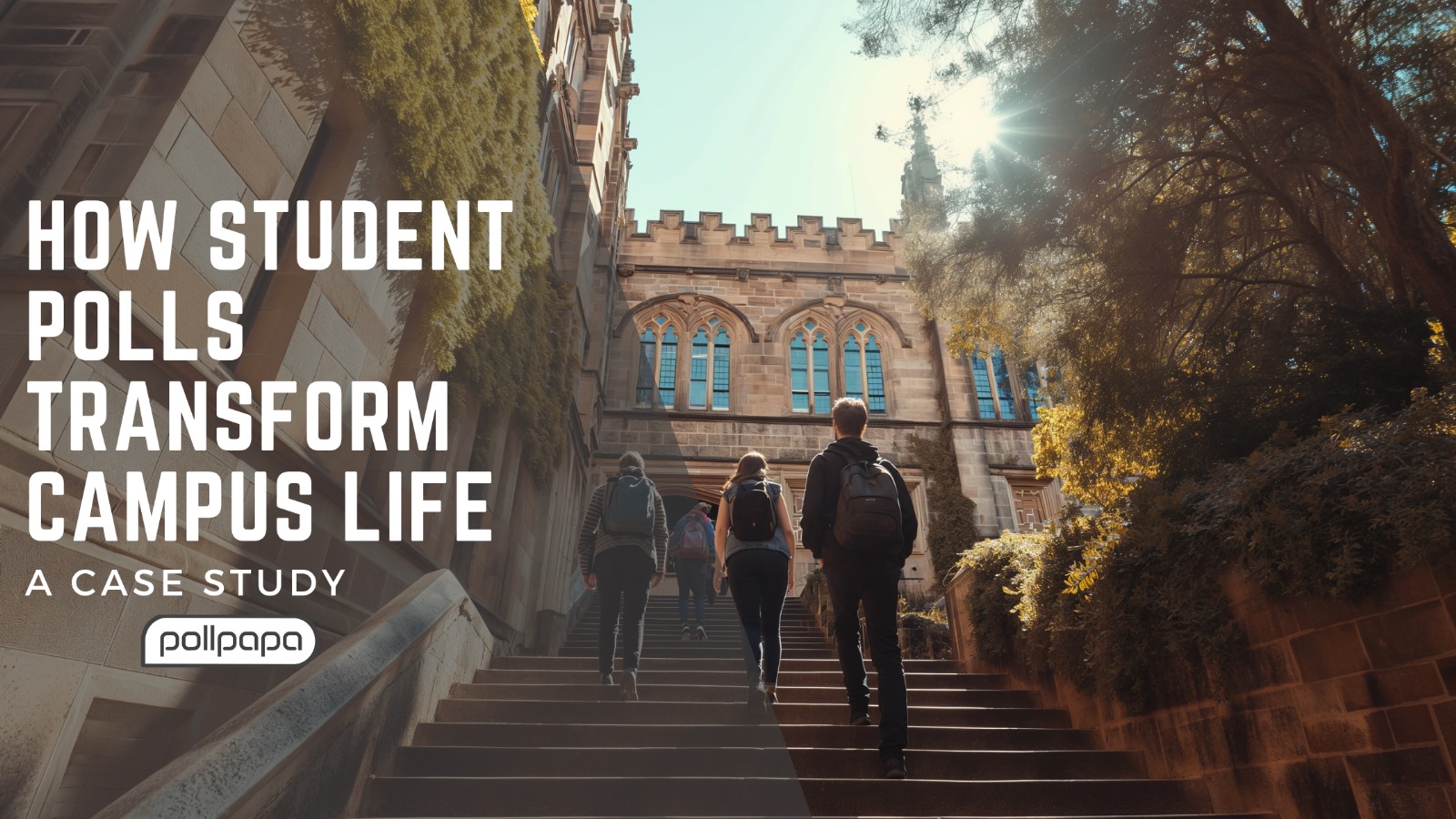A Case Study
Universities are particular communities, a world within a world, where diverse backgrounds, ideas, and aspirations converge to create a unique and dynamic environment. This microcosm reflects broader societal issues and opportunities, offering a fertile ground for innovation, collaboration, and personal growth. The needs of students are not the same as the general needs of every young generation. Studies show that on-campus youth think and act, in some cases, opposite to youth off-campus.
To effectively address student needs, administrations must actively listen to their voices. Polling apps like Pollpapa have emerged as a powerful means of enacting change on campus. This blog post explores a case study where student polling led to significant improvements in campus mental health services, showcasing the potential of this approach to foster a more supportive and inclusive community.
At Lakeside University, mental health concerns among students had been steadily rising. Despite existing counseling services, many students felt that the support provided was insufficient and difficult to access. Recognizing the critical need for better mental health resources, the Student Government Association (SGA) decided to conduct a comprehensive polling initiative to understand the specific issues and areas needing improvement.
The SGA launched a campus-wide poll to gather detailed feedback on mental health services. The poll aimed to be inclusive, capturing input from a diverse cross-section of the student body. It included questions on:
– Accessibility and availability of counseling services
– Wait times for appointments
– Variety of mental health resources offered (e.g., counseling, workshops, peer support)
– Quality of support provided
– Overall satisfaction with mental health services
The poll was distributed via email, social media, and physical flyers to ensure maximum participation. Using a polling app like Pollpapa can streamline the process, reducing time, distance, and distribution efforts with a single click. To encourage responses, incentives such as entry into a raffle for wellness-related prizes were offered.
The response rate was high, with over 65% of the student body participating. Key findings from the poll included:
– 55% of respondents reported difficulty in accessing counseling services due to long wait times.
– 40% expressed a need for more diverse mental health resources beyond traditional counseling.
– Many students indicated that they were unaware of the available mental health resources.
– Overall satisfaction with mental health services was rated as low by 50% of respondents.
With the detailed and statistically significant feedback, the SGA presented their findings to the university administration. The administration recognized the urgency and made several strategic changes:
The university hired additional counselors to reduce wait times and ensure that students could access support when needed. New initiatives were introduced, including mental health workshops, mindfulness and stress management programs, and peer support groups. Online counseling options were also made available to increase accessibility. A comprehensive awareness campaign was launched to inform students about the mental health resources available to them. This included regular emails, social media updates, and informational sessions during orientation. A continuous feedback mechanism was established, allowing students to regularly provide input on the effectiveness of mental health services. This ensured that the administration could make ongoing adjustments based on student needs.
The impact of these changes was significant and positive. A follow-up poll conducted six months later showed a marked improvement in student satisfaction:
– 80% of students reported improved access to counseling services, with reduced wait times.
– 65% were satisfied with the variety of mental health resources available.
– Awareness of mental health resources had increased, with 75% of students feeling well-informed about the options available to them.
– Overall satisfaction with mental health services had risen to 70%.
This case study from Lakeside University demonstrates the transformative power of polling in creating positive change on campus. By actively seeking and responding to student feedback, the university not only improved its mental health services but also fostered a supportive and inclusive community. Polling, when used effectively, can bridge the gap between administration and students, ensuring that the voices of the campus community are heard and acted upon.
Read also

Putnam's "Bowling Alone" (2000) aptly illustrated how Americans were progressively becoming disengaged from their communities, resulting in lower social trust.





